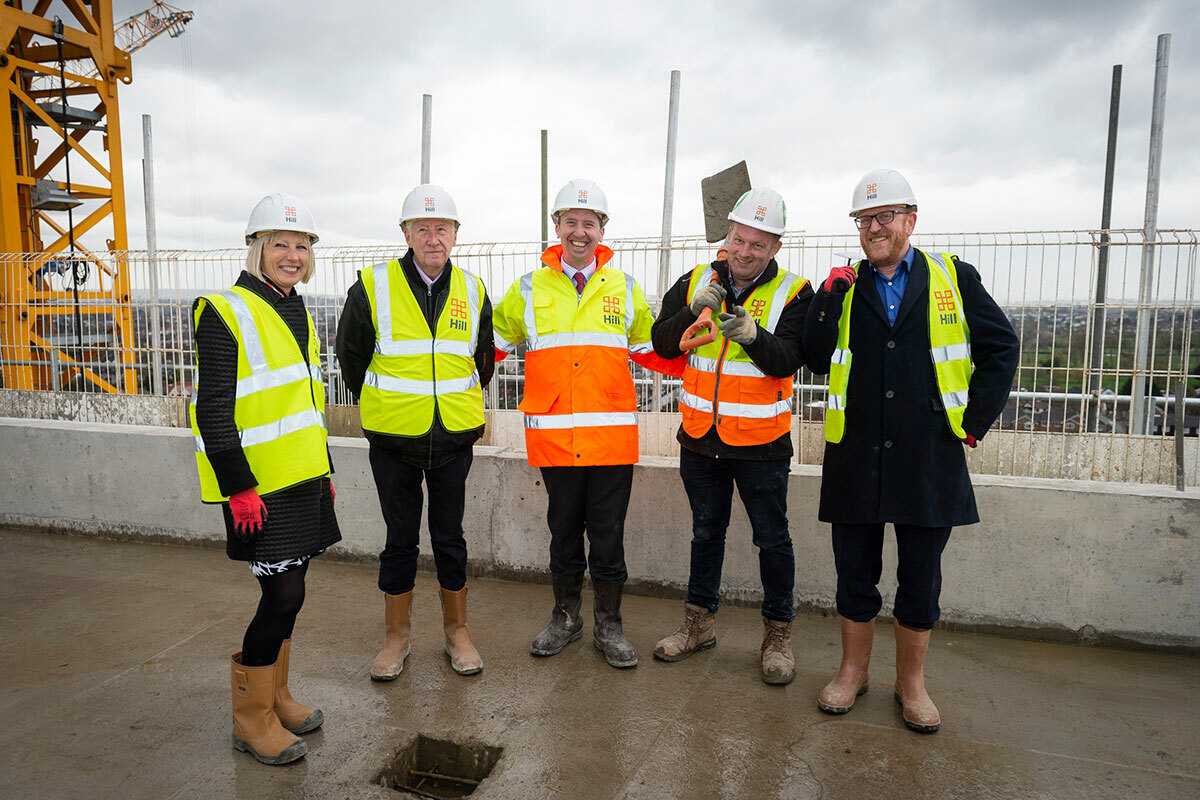Short on time? Thursday’s housing news in five minutes
A round-up of the top stories this morning from Inside Housing and elsewhere
Top story: Shared ownership Right to Buy likely to be applied to all rented homes funded under £12bn programme
A number of housing association said “the devil would be in the detail” of the £12bn Affordable Homes Programme announced by chancellor Rishi Sunak yesterday.
And some of that detail emerged last night, as Inside Housing revealed that the government is strongly considering making all new rented homes which are built under the new funding scheme to be made available for tenants through the shared ownership Right to Buy.
The policy which was first mooted at last year’s Conservative Party Conference was seemingly dropped after it didn’t appear in the Conservative manifesto. However, it now appears it is back on the table for the housing secretary.
Click here to read the full story
Fire safety costs ‘could still hit development pipelines’ despite £1bn fund
While the sector welcomed the £1bn fund for the removal of all types of dangerous cladding from blocks over 18m, the headache for housing associations is far from over.
Association leaders have said that they are likely to incur heavy costs from fire safety works on their stock despite the fund, and this is likely to impact development pipelines.
There is also still the question of what is going to be done about buildings under 18m, with new government guidance calling for work to be carried out on these blocks too but no funding is available.
Lunchtime long read
There is a new financial product that a growing number of housing associations are signing up to: loans that give organisations better terms if they meet sustainability targets.
So with more and more associations securing deals on these terms, Rhiannon Curry finds out why they are so appealing and what makes them more sustainable.
Quote of the day
“However, where pre-Budget rhetoric had boasted of the biggest increase in investment in a decade, the chancellor was more modest in his speech as he hailed ‘the largest cash investment in affordable housing in a decade’.
“And for good reason. That form of words concedes that housing investment will still be lower than the Conservative-led government inherited from Labour in 2010. What was then called the National Affordable Housing Programme was worth £8.9bn but over the three years from 2008/11, which works out to £2.97bn a year.”
Jules Birch analyses yesterday’s Budget announcements and discovers that while the increased money is a welcome step it does not touch the sides of pre-2010 investment.
In the papers
Picture: Getty
Many of the newspapers this morning are reflecting on the Budget yesterday, which saw billions promised to the housing sector. The I newspaper’s housing correspondent argues that while the announcements sound good, in practice they may not go far enough. The piece argues that it looks likely the money will not go towards the much-needed social rent homes.
The Times proclaims the Budget is the “biggest boost for affordable homes” in a decade. In addition to focusing on the £12bn Affordable Homes Programme, it picks up on the increased stamp duty non-UK residents will have to face if they buy a property in the UK – an increase of 2%. The money raised will be used to help address rough sleeping.
The Guardian looks at the the £1bn fund for fire safety and brands it as a “huge step forward”, but says it is likely to be too little and would still leave thousands of people in financial and safety limbo.
Local news
Picture: Getty
Rochdale Online has a story about a local councillor who has written to the housing minister to ask him to visit Rochdale to investigate a controversial plan to demolish four of the Seven Sisters tower blocks in the town.
Last year, tenants living in four of the landmark Seven Sisters tower blocks – Mitchell Hey, Dunkirk Rise, Tentercroft and Town Mill Brow – were told their homes will likely be torn down within the next seven years. And councillor Faisal Rana is calling for the minister to step in to review the decision and stop the demolition.
The Belfast Telegraph warns that coronavirus could have an impact on the Northern Irish housing market. The Royal Institution of Chartered Surveyors in Northern Ireland said: “The past couple of months have seen a clear improvement in sentiment in the Northern Ireland housing market, leading to more listings, more viewings and more sales.
“Surveyors remain positive about the outlook as well; however it remains to be seen how the coronavirus situation develops and what impact that has on viewings and activity in the short-term.
“Surveyors’ long-term expectations for prices and sales activity remain strong.”
Around the sector
Hill, a house builder, and Origin Housing, a leading housing association in London and Hertfordshire, hosted a topping out ceremony at Harrow One to celebrate reaching the highest point of the build at their latest joint venture development in Harrow, which will deliver 204 high-quality homes.
Calum Kidd, deputy regional director at Hill Partnerships, and Carol Carter, chief executive of Origin Housing, were joined at the ceremony by Keith Ferry, deputy leader of Harrow Council.
We want to hear from you! To tell us what your organisation and staff are doing, email editorial@insidehousing.co.uk.








